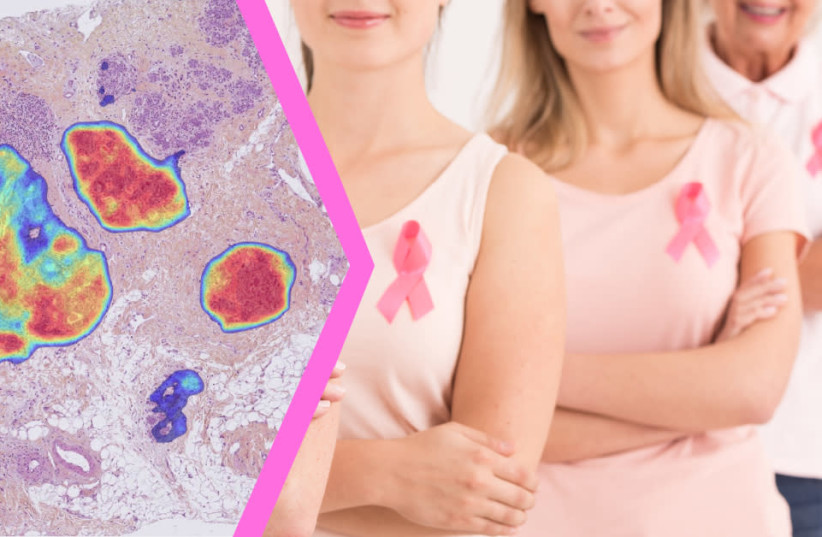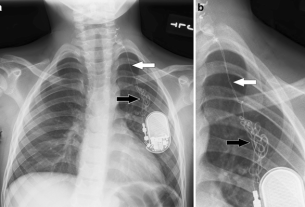Testing all Ashkenazi Jewish women for a variant of the BRCA gene that greatly increases the risk of breast and ovarian cancer – instead of only women at high risk due to family history – has been found to be cost-effective.
The analysis by researchers at Jerusalem’s Shaare Zedek Medical Center, the Hebrew University’s Faculty of Medicine and School of Public Health, Ben-Gurion University and Clalit Health Services was the scientific basis for population screening recently made available by the Health Ministry to women without a family history of the cancers or seeing a specialist first. Until then, the ministry strictly limited the number of Ashkenazi women who could be tested at no cost.
Reported by Dr. Rachel Michaelson-Cohen, director of Shaare Zedek’s Prenatal Genetics Unit under the title “Real-World Cost-Effectiveness Analysis of Population Screening for BRCA Variants among Ashkenazi Jews Compared with Family History-Based Strategies” in the journal Cancers, the study was led by Prof. Ephrat Levy-Lahad, head of Medical Genetics Unit, and her husband Prof. Amnon Lahad, head of HU’s Family Medicine department and Clalit Health Services, Jerusalem.
Israel is the only place in the world to offer a screening of an entire population, she said. The team set 30 years of age as the lower limit for genetic testing, since it is the age of surveillance initiation in carriers, and 65 years as the upper limit because after that, surgical morbidity may increase, while effectiveness and cost-effectiveness may decrease. However, the screening test is open to all women aged 18 and over.
Testing for the gene
The number of Ashkenazi Jewish women in Israel who are in this 30-65 age cohort is 850,000, and the cost to the state is only $3 for each genetic test. However, it is estimated that only 17,000 women would go for such a test in a year. If the test is positive, the woman needs to undergo an annual MRI scan, blood tests and other follow-ups, but the health system will still save money because treating cancer is extremely expensive, Michaelson-Cohen said.
MEN WHO carry a BRCA variant have a much lower risk of cancer from carrying the gene, so they are not included in the screening program so far. They can, however, transmit the gene to their offspring.
“Identifying BRCA mutations carriers reduces cancer incidence by surveillance and prevention. We analyzed the cost-effectiveness of population screening for BRCA mutations in Ashkenazi Jewish women for whom the carrier rate is 2.5%, compared with existing strategies, such as testing in carrier’s relatives and international family history-based guidelines,” they wrote.
For every 1,000 women, the model predicted 21.6 quality-of-life years gained, a lifetime decrease of three breast and four ovarian cancer cases for screening all Ashkenazi women versus the previous strategy of the Israeli health system, which was to test only those who had a relative with a BRCA mutation.
Breast cancer is the most common malignancy and the leading cause of cancer death in Israeli women, while ovarian cancer is the most lethal gynecological cancer. Combined, they were the leading overall cause of death for Israeli women in 2019, they wrote.
About half of these carriers don’t have a relevant family history of the BRCA gene and would not be identified without screening all women of relevant ages, but the lack of a family history doesn’t mean they have a significantly lower cancer risk. The lifetime risk of developing cancer for carriers identified by screening was 83% for a BRCA1 mutation and 76% for a BRCA2 one, which was not significantly different than risks to carriers having a family history of the mutation.
Once carriers of the BRCA1/BRCA2 mutation are identified, there is a recommendation around the world to prevent ovarian cancer by removing the ovaries and both fallopian tubes, reducing the rate of death by about 70%. Some women have their breasts removed and augmented using plastic surgery.
The advantage in breast cancer prognosis has recently been found in a study the team performed to improve survival of BRCA-mutation carriers before they developed breast cancer.




